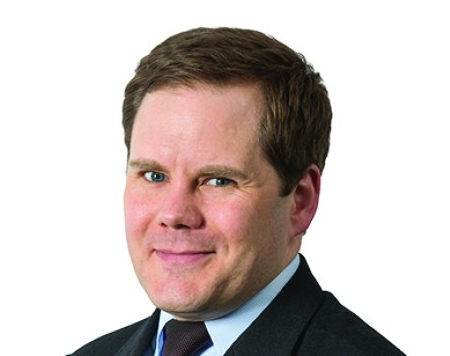A strong majority (93%) of affluent women “enjoy making and accumulating money” and more than half (53%) believe that money helps buy happiness, according to a new Wells Fargo survey of affluent women. Women have a strong sense of pride in earning money with 85% of them saying they feel proud about their earning power. Versta Research conducted the survey of 1,872 women, ages 40-79 with at least $250,000 in household investable assets, to examine their perspectives on wealth, investing, work and retirement.
Affluent women are taking the lead in managing the daily finances with 82% percent managing the household budget and purchase decisions, 79% managing the household cash flow and 75% paying the bills. But only 46% of these women are taking primary responsibility for choosing and managing investment accounts, and this rate falls to 34% among married women. Affluent women in their 40s buck this trend, with more than half (56%) choosing and managing investment accounts.
As their wealth has increased, 43% of affluent women say they have become more competent at handling investments, while 53% stayed the same and 4% became less competent. Along similar lines, a minority of these women (36%) say they have become more involved in financial decision making, while a majority (58%) say their involvement in financial decision making has stayed the same and 6% became less involved.
“I don’t think I’ve seen a study where women so overwhelming express joy at earning money and pride in their capacity to do so. And, they credit the stock market for increasing their wealth. However, we see fewer women managing their investments, although that is changing. The good news is more younger women in the workplace are taking on the role of investing for their households. If you are making money and you think the market is helping your money to grow, then it makes sense to be more directly involved in investment decisions,” said Karen Wimbish, director of Retail Retirement at Wells Fargo.
Wealth and the Stock Market
While a majority of affluent women (94%) feel they’ve worked hard to create their wealth, 68% acknowledge that most of their wealth has been generated by investments and growth in the stock market. More than three-quarters (78%) feel the stock market is the best way to grow savings over the long term. In fact, nearly two-thirds (64%) of affluent women say it’s more exciting to watch assets grow through good investments in the stock market versus watching it grow by earning and saving them (36%).
Given the stock market’s growth over the last five years, 37% of affluent women say they are “more eager to put money into the market right now,” while 23% are “more reluctant to put money in the stock market now” and 40% admit they “don’t pay much attention to the stock market.” Interestingly, almost three-quarters (73%) disagree that the stock market is too risky for them while 27% agree. But this is tempered with the more than half of women (54%) worried about losing money in the stock market.
The Role of Work
Work is an instrumental part of life for affluent women. In fact, three-quarters of affluent working women say having a job or career is important to them even if they don’t need the money. Two-thirds feel they are fairly compensated at work today. Yet, 59% of affluent working women don’t think women will achieve pay equality in the workplace in the next 10 years.
Sixty-two percent believe that women can “have it all” when it comes to balancing their career and family. However, only 38% say “having it all” is their goal (of whom 81% feel they are succeeding at it). Two-thirds (65%) of affluent women believe fathers should be more proactive about staying home to help raise children. Even if “having it all” is not the goal of many affluent working women, 58% say they are struggling with work-life balance. If given the opportunity for a big promotion at work that offered a significant step up from their current role and level of responsibilities, two-thirds (66%) of affluent women would accept it (of which 31% would be “excited, eager, and ready for it” and 35% would “accept it, but with reservations”) and 34% would decline it. Of those who would “accept it, but with reservations,” 53% worry about managing work-life balance, 30% worry about whether they are ready and have the skills to succeed, 16% are not sure if their current career path is what they really want and 23% cite other reasons.
Bequeathing the Financial Knowledge
While generally most affluent women would agree their parents did a good job teaching them about managing and saving money when they were growing up, more than two-thirds say no one ever taught them how to invest in the stock market. Nearly all affluent women (98%) say it’s important for women to feel confident about investing, but fewer (71%) actually do. One in five (21%) say one of their biggest financial regrets is not learning more about money and finance. While nearly one-third (30%) think that men are more interested in finances and investing, a majority (89%) don’t think men are better at it and half of affluent women think that men are overconfident when it comes to investing.
“It is interesting to see that affluent women credit their wealth to the stock market even though most say that no one taught them how to invest in the market,” said Wimbish. “These are successful women that should have the confidence and interest in making investment decisions for their future.”
Saving for Retirement
Affluent women are well-positioned for retirement. While the financial crisis did not affect the financial well-being for a majority of affluent women (57%), it did impact their savings behavior. More than half (54%) say it made them “more aggressive about saving money.” Only 48% of non-retired affluent women have an annual savings goal, and the median annual goal is $20,000. Non-retirees have saved a median of $600,000 and have a median goal of $1 million. They plan to retire at the average age of 64. While three out of four affluent women agree that they need at least $1 million to “feel wealthy,” 42% feel they would need $2 million or more.
“It’s crucial to have a savings goal so you know if you are on track. These women have the means and are disciplined savers, but having a financial plan with an investment strategy can put them on an even better path,” said Wimbish.
The affluent women surveyed exude confidence about having enough money. Four out of five (82%) non-retirees feel confident they will have enough money to live the kind of retirement they want. Nearly all (95%) of retired affluent women feel they will have enough money in retirement.
Seventy-two percent of non-retirees value their assets and wealth more for the lifestyle and security it will afford them in retirement versus the lifestyle and security it gives them right now (28%). The top three things that scare affluent women about retirement are: losing their health (55%), losing their mental abilities (52%) and running out of money (29%).
Defining a Successful Retirement
In defining a successful retirement, more than half of affluent women feel it is having enough money for their preferred lifestyle (55%), with other top choices including being healthy (23%) or spending time with family and friends (13%). When non-retirees think about their future in retirement, they look forward to spending more time with family (64%), focusing on physical fitness (63%) and becoming more charitable with their time (58%).
While it is hard to imagine what life will be in retirement, half of non-retirees (52%) anticipate their expectations and goals will change once they retire. Fifty-eight percent of retired affluent women say they did not have a realistic picture of what life in retirement would be like until they were in their 60s and beyond. And 43% of retired women say their retirement years are different from what they imagined.
“Life in retirement is hard to imagine until you are actually living in it. Having the fortitude to have a financial plan with realistic goals for saving and investing will allow you to recalibrate your retirement dreams when the time comes,” said Wimbish.




